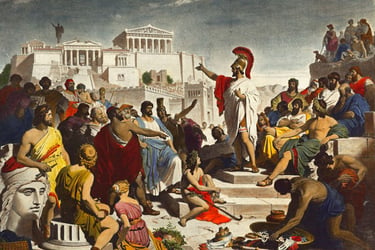Why Are We Doing This?
Original playwriting is in a difficult situation at the moment.
The subsidised theatre sector has suffered from slashes in public funding. The commercial theatre sector, facing a post-pandemic reduction in audience numbers, is increasingly cautious about its investments.
What options are available for a playwright looking to get their work staged? In some ways, each available avenue to stage new writing is a lottery of some form:


Public funds are literally provided by the National Lottery, and are apportioned to those who are able to navigate the Arts Council’s increasingly arcane application process, which is most accessible to those who have won the social lottery to have the time and energy to wrap their head around it, or pay someone else to do so. Representatives from the Arts Council have even themselves likened the process of getting funding to winning the lottery;
Self-funding and commercial investment can only be accessed by those who have won a social lottery to possess wealth or be connected to the wealthy;
There are playwriting contests which are perhaps the fairest way in which to get new work staged, but what about the social lotteries that have been won to have the time, energy and skillset to write a play? What social lotteries have to be won to understand the unconscious biases that affect the selection process of increasingly underpaid and overworked script readers?
Faced with the above subtle lotteries that cannot help but exclude people, would it not be more honest to run a pure Play Lottery? To leave the selection of a show entirely to the gods?
The Play Lottery is an attempt to shake up a new writing scene, by allowing anyone in the UK to submit a script, and then choosing the winning play entirely at random. The belief is that a truly disruptive challenge to structures cannot be produced within those structures, and only in the chaos induced by true randomness can we hope to discover the genuinely new.
Since its launch, The Play Lottery has already sparked national debate (and some controversy), with coverage in BBC News, The Guardian and The Stage. One famous playwright said that it "perpetuated the myth that anyone can write a play". But we feel, very strongly, that anyone can write a play. And intentionally or not, not everyone is getting the chance to see them reach the stage.
Art produced by any person, rather than those who have won a social lottery, is the lifeblood to a healthy society.
